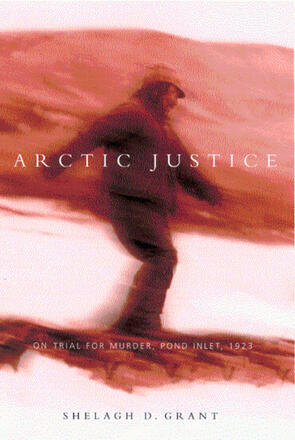
Arctic Justice
On Trial for Murder, Pond Inlet, 1923
La description
Despite the fact that Nuqallaq was following Inuit customary law in carrying out a collectively sanctioned act to defend the community from the dangerously crazed trader Robert Janes, Canadian authorities made the unprecedented decision to put him and two accomplices on trial for murder. Grant shows how this decision was motivated by Canada’s international political concerns for establishing sovereignty over the Arctic and how the outcome of the trial - Nuqallaq’s sentence to ten years of hard labour in Stony Mountain Penitentiary and subsequent death from tuberculosis - was determined more by fear than evidence. In what amounts to a social history of North Baffin Island in the twentieth century, Grant offers telling portraits of the people involved, including the victim, Robert Janes of Newfoundland; Captain J. E. Bernier of the CGS Arctic, explorer and friend to the Inuit; English trader and entrepreneur Henry Toke Munn; the investigating RCMP officer Staff-Sargeant A. H. ; Judge L. A. Rivet, and others. Most importantly we meet the remarkable Nuqallaq, his wife Ataguttiaq, and the Inuit of North Baffin Island. Arctic Justice will appeal to anyone interested in the Arctic and its indigenous peoples, contact history, anthropology, legal history, and RCMP history.
Reviews
"This is a fascinating story and a valuable contribution to the history of Northern Canada. Most significantly, because Grant has talked to the Inuit, this is the first time that the story of the relations between Inuit and newcomers has been told from the Inuit perspective. " William Morrison, history, University of Northern British Columbia and the author of True North: The Yukon and Northwest Territories "Grant provides a riveting illustration of how Inuit traditionally handled dangerous people in their society. She gives an excellent and dramatic account of the trial, the circumstances behind it, and the tragic aftermath. " Dorothy Harley Eber, author of When the Whalers Were Up North and Images of Justice